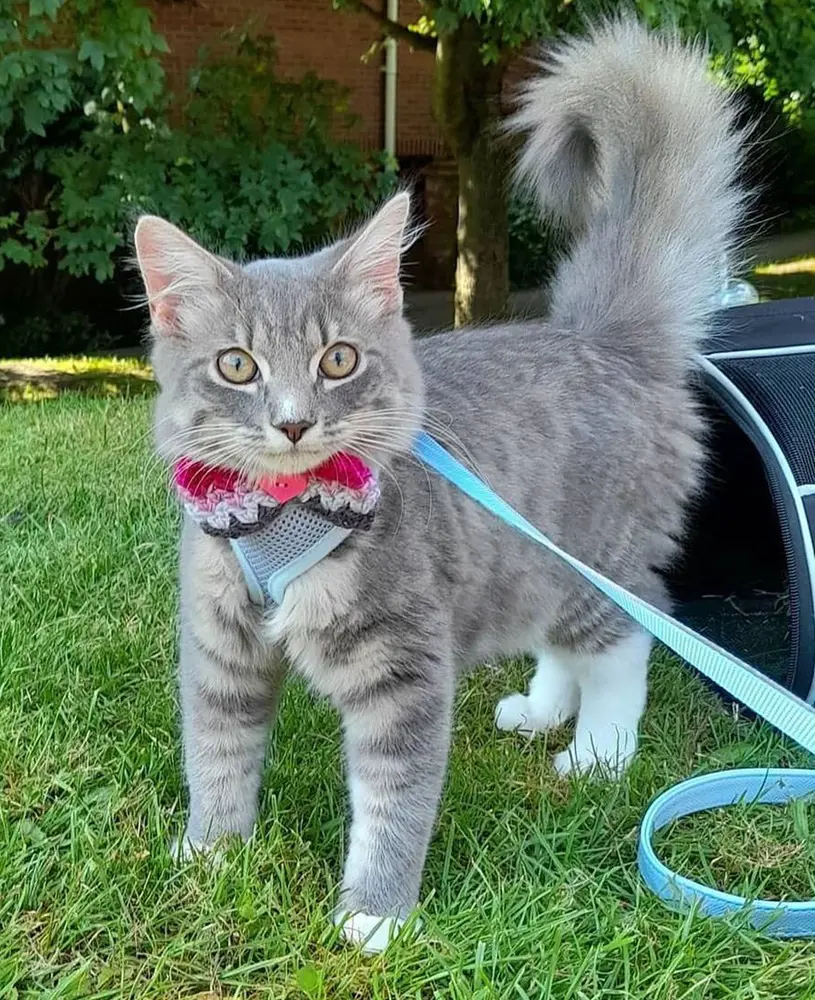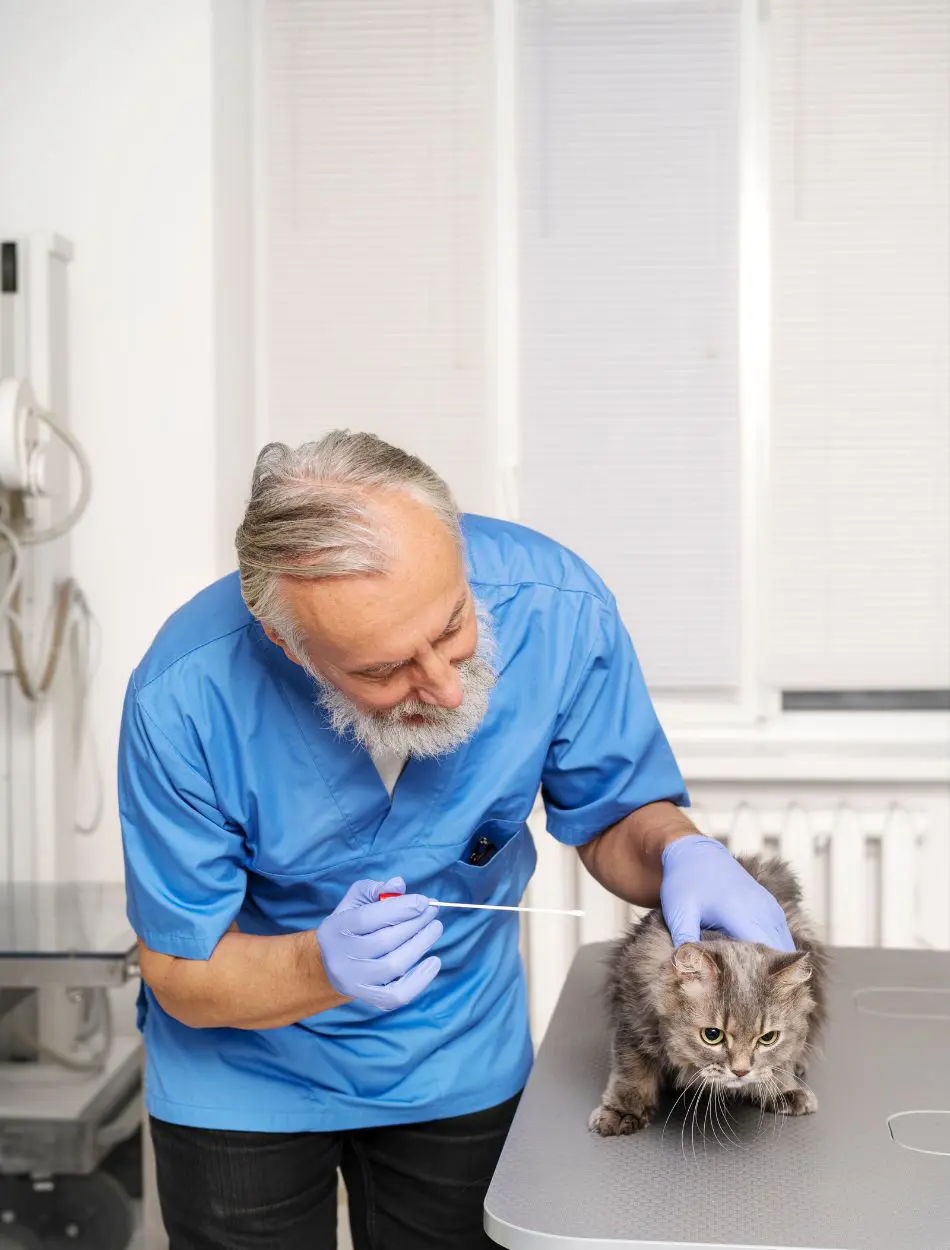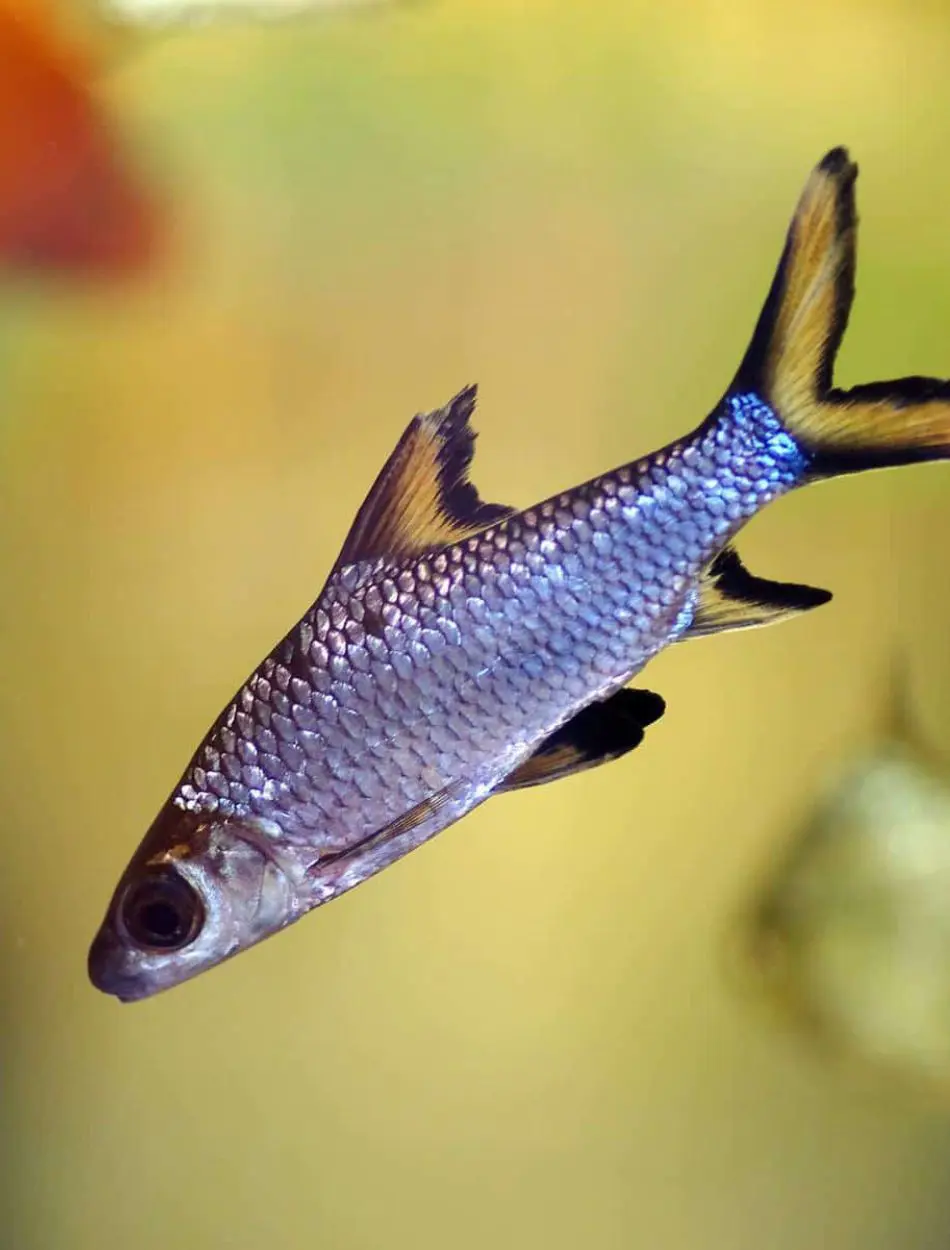Why Is My Cat Clingy? 16 Common Reasons

If you have ever found out that your cat has suddenly started following you everywhere, begging for your attention, or clinging, you'd have probably wondered why your cat could be so clingy.
Your cat can be clingy for many reasons and the key lies in understanding these factors to improve their well-being, you should understand what can make your cat clingy due to changes in its environment, health issues, or just because of its nature.
Let's learn the common reasons in this article for this and see how you can support your fur baby.
1. Separation Anxiety
Cats typically engage in clinging due to separation anxiety since the animal fears being left alone and therefore clings close to one's owner and it can result from the cat developing a situation of being left alone for long periods and very sudden changes in environment or routine.
Knowing that your cat may be acting clingy out of a fear of abandonment sometimes enables a person to deal with it a bit more humanely and building up security in your cat by establishing regular routines and slowly reducing the time that they spend alone can reduce anxiety.
Comforting clothes such as a T-shirt that smells like you, can be very calming to your cat while you are away and provide a nicely stimulating environment with play toys and activities of interest can divert their attention from feelings of anxiety and provide security.
2. Health Problems

It is very common to show traits of trying to be comfortable and seeking reassurance from the owner and since cats usually hide discomfort, increased clinginess could be indicative of some actual medical problem.
Other behavior changes under monitoring can include eating habits or the litter box, which can also be indicative of a health problem that may be contributing to your cat's needy behavior, and early recognition and treatment of health problems can be made during regular veterinary check-ups.
Show your care for them and make them feel secure and comfortable during their time of illness and provide a secure, quiet environment for them to rest in and have their privacy, administering the prescribed treatments and medication is indeed necessary for them to recover and consequently, be healthy again.
3. Hunger
One of the reasons a cat can turn out overly attached is due to hunger and probably because the pet tries to reach out to its owner and demand food, they will always follow their owners everywhere and meow at every turn or scratch them for attention if they are hungry.
Establish a regular feeding schedule for your cat to rule out hunger as one of the reasons it may be clingy, a proper diet and good portioning will keep them sustained and healthy.
If your cat remains clingy even after a proper feeding regimen, you may want to consult with a professional to see if there are any health or dietary problems.
4. Attention Seeking
Cats may get very clingy for them to catch an owner's attention if they think they have been neglected far too much and this may at times happen due to the simple fact that most cats just do not get enough interaction, entertainment or even love from their human.
Building up a routine with the cat by spending quality time every day through some interactive play and displays of a little affection will also satisfy this need and bonding time facilitates the establishment of those routines that will decrease clinginess and likely create strong relationships.
If you are leading a very busy schedule, you should try to offer your cat some playing items, puzzles, and activities for them to do by themselves and this will keep him or her entertained and therefore not dependent upon you for constant attention.
5. Boredom

This can lead to a cat becoming clingy and this is because they want the stimulation and action an owner offers, cats are very curious and active, so if they haven't got enough activities that satisfy their minds and bodies they may resort to their owners' entertainment.
Keep your cat busy at all times with a wide array of toys and climbing structures for mental and physical stimulation, interactive games will keep it busy and away from boredom and rotate their toys to switch up their activities so they won't get bored and learn to lower their clinginess.
Playing with and handling your cat daily is believed to build their bond with you and increase their activity and providing windows and outdoor views to observe will also keep them entertained and busy.
6. Stress or Fear
It simply means that in general, the insecurities can be stress or fear so the cat reaches out to the owner for a nice and informal atmosphere and there could be a lot of reasons for them to start with changes in surroundings, walls shattered by loud sounds, or the rest of the animals.
Provide a safe, calm environment for the cat and this can be achieved by easing it from stress and fear and it is probably the addition of hiding spots, quiet areas, and familiar items that may give a cat a feeling of security.
If your cat suffers from a more advanced case of anxiety, discuss calming aids including pheromone diffusers or sprays, your doctor can also provide you with tips to lower the level of stress your cat is experiencing and rectify the root cause, for instance, change in environment.
7. Change in Environment
Simple changes in the environment can be the addition of pets or shifting houses, and cats are creatures of routine, so even a few changes in their surroundings can make them anxious and clingy.
Gradually introduce your cat to new surroundings or any change as it makes them more familiar with the environment in case they need to adjust to it and allow them to explore and give them familiar objects such as their favorite blanket or toys, to help reduce anxiety if there is a change.
This will help to make them feel a bit more secure by keeping their basic routine rather intact and additional attention and reassurance will also make them feel secure in their new environment.
8. Aging

With failing health, cats can become very much needier as they grow older and they may long for more comfort and company particularly when they are suffering from various problems caused by old age, such as arthritis, dementia, or even sensory failure of one type or another.
They will have a sense of security owing to the comfortable, easily accessible environment and easy access to food, water, and litter boxes would lessen their stress and enhance independence.
Regular check-ups with a veterinarian are essential to monitor the health condition of your aging cat and to attend to any problem that might arise as a result of aging and additional attention, affection, and sensitive handling will influence the quality of life and decrease clinginess.
9. Attachment to Owner
A cat can also be clingy due to a strong attachment to their owner and they will like staying close to a person they trust and feel safe with, this could commonly happen in cats brought up closely with their owners or those having strong bonding.
The quality time one spends allowing the cat to have desires and needs to be met draws it closer and makes the bond strong and it makes them feel more secure due to consistent levels of care and attention so in effect, it may reduce their clinginess.
If your cat suddenly becomes clingy, make them gradually independent by offering them some toys and activities and also safe areas where they can comfortably spend some time alone.
10. Pregnancy or Heat
They can become very clingy and demand for attention from their owners during heat or pregnancy much more so than usual, hormonal changes may make them very demonstrative and clinging.
Providing a quiet and comfortable area during pregnancy or heat can help rid some of the anxiety and clinginess, it's always good to provide a safe place where they can just rest and relax.
Your professional can also offer advice on cat behavior in pregnancy or heat because some cats sometimes need a little extra attention and tender loving care to make them feel more secure.
11. Recent Adoption

If your cat has been adopted recently then it would be clingy due to getting used to its new home and this is a time full of strange sights, sounds, and smells so the cat desires comfort and security from the owner and this change might be stressful and the cat insecure in this new environment.
Your cat is probably looking for some reassurance and attachment during this period, they will learn their new surroundings, try to pick up the new family and get used to them, and consistent care and attention which would make them easily feel at ease over this transition and feel more homely.
You can provide them with a safe space to fall back on if they feel overstimulated and introduce the cat slowly around the rest of the house, and spend some quality time playing or interacting so this would build up confidence and make them less clingy with time.
12. Previous Neglect
Such cats which have been neglected in the past often cling too much and probably due to the comfort and safety they find in the new environment, this background most of the time leaves such cats with a fear of being left alone.
They might stick around their owner everywhere in search of comfort and affection and sometimes this fear of abandonment may be the trigger for this kind of continuous companionship.
Knowing that your cat probably came from a background of neglect will make you more patient and understanding about the situation, cats coming out of this situation are likely to require some extra attention for building trust and feeling secure in their new home environment.
After some time your cat will eventually relax and thus begin to enjoy this new stability, which would then reduce the need for clingy behavior by feeling more comfortable in their environment.
13. Multi-Pet Household

If more than two animals are craving the affection of their owner, it may be that one feels less than enough and seeks out his human for safety and this kind of behavior manifests itself through increased following, vocalization and other affectionate gestures toward the owner.
This type of clinginess can in such cases be brought about by anxiety about their status in the household and when Cats Feel Subdued by other Pets, they feel overshadowed by other pets may try to hold on to their owner, and become more demanding of attention.
Treatment of this behavior consists of giving attention to all pets so that each pet is given an equal share, making them feel important. In a multi-pet environment, providing ordered playtime and interaction can help a lot with clingy cats.
14. Travel Stress
Travel stress can make some cats clingy especially those who have had bad experiences while on the road and they are creatures of habit, and recurrent anxiety is brought about if placed in new environments or new sounds, broken through changes in routine and it might be transferred as clinginess for comfort and security from its owner.
Like most animal species, cats tend to turn to the owner for solace and companionship when going through a lot of unexpected sights, sounds, and jerky movements in the process of travel, the stress of traveling would make them feel vulnerable and then leads to its wanting to stay close to the trusted human.
During long-distance travel, you should provide regular breaks and upon arrival allow the cat the being-used-to phase on its own, reassure and support to make your cat more secure and less clingy.
15. Hypothyroidism
Hypothyroidism in cats affects the metabolism of the cat and it can easily manifest itself through a series of symptoms, including weight increase, lethargy, and behavioral change and a hypothyroid cat may want more attention from their owner due to tiredness and general feelings of being unwell.
Excessive clinginess with hypothyroidism can be a result of the need for comfort and security in the presence of some form of physical discomfort and your presence seems to comfort the cat in light of the condition it has to deal with.
In case of a suspicion of hypothyroidism in your cat, you should take it to your professional for the proper diagnosis and the appropriate treatment plan, with some care and proper treatment your cat might bounce back to its high energy and independence level.
16. Reaction to Prey-Drive

Cats with a high prey drive can become clingy while seeking comfort in a secure owner when working through instincts and with a heightened prey drive, cats may want to chase small animals or things, and that feeling could cause anxiety from being indoors or unable to do so.
They will either cling to the owner for security or act in some kind of way to let out pent-up energy, a cat feeling insecure or restless, without such an avenue, will keep on shadowing an owner and/or demanding more interaction and knowing that cats' clinginess can be a part of their hunting instinct is very important in addressing their needs.
Using an interactive toy like feather wands or laser pointers can create a stalking or chasing prey feeling and installing climbing towers and scratching posts enriches the environment, helps to channel the energy and can make them feel safe and independent.
Top Lists







